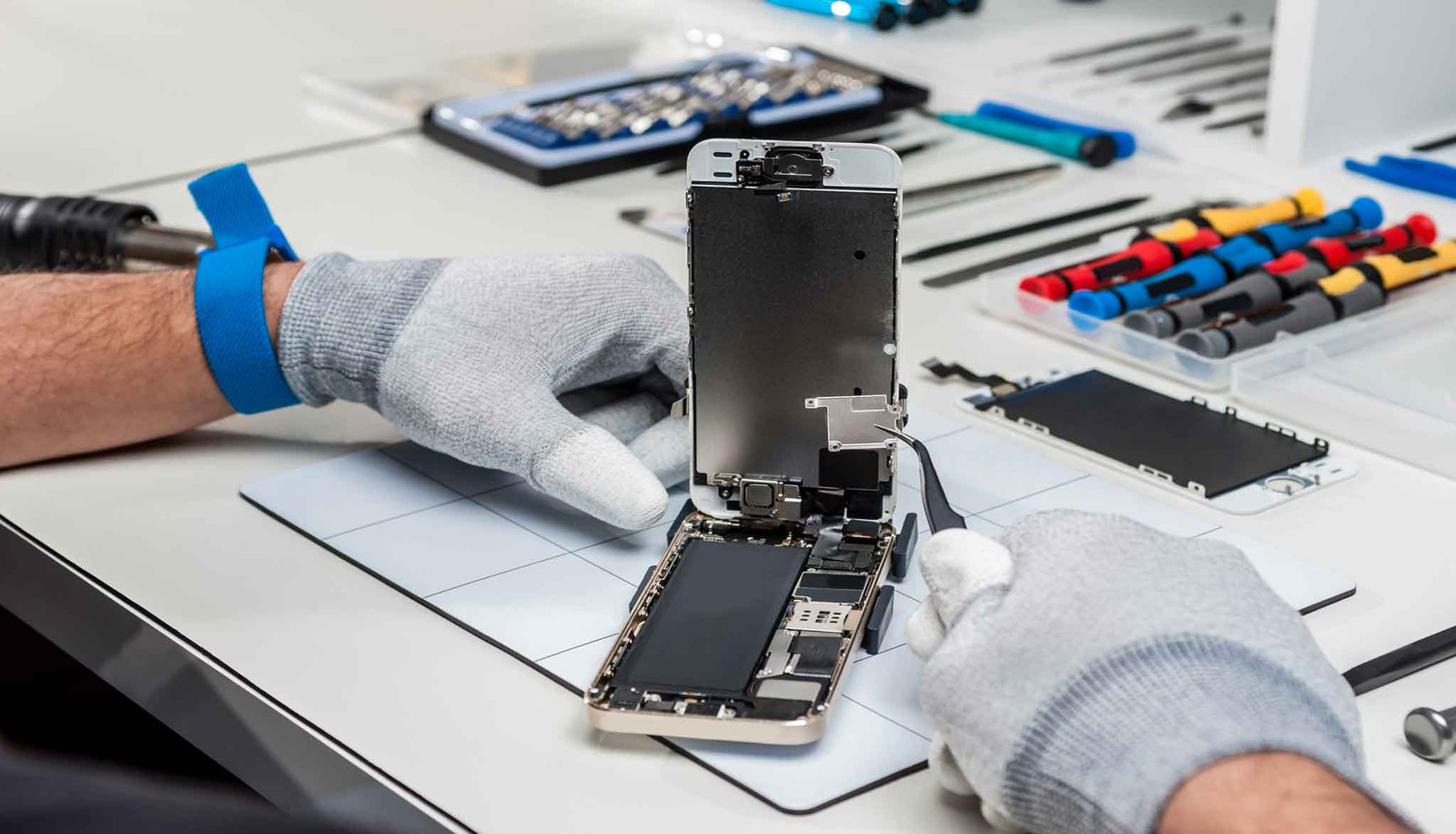
Lawmakers in five states introduced a bill that aims to grant consumers the “right to repair” electronics, obligating manufacturers to sell replacement parts to owners and independent repair shops as well as make diagnostic and service manuals publicly available.
Pushed by Repair.org , a small lobbyist group made up of independent repair companies, the legislation aims to overturn the “authorized repair” model that creates an aftermarket repair monopoly dominated by the manufacturers. For example, Apple doesn’t legally authorize any third parties to repair its iPhones even though independent shops offer this service. And herein lies the problem: procuring spare parts requires salvaging recycled electronics or going through the Chinese grey market, an act which has previously resulted in raids from Homeland Security Immigrant & Customs Enforcement (ICE) agents.
Smartphones aren’t the only devices lacking a “right to repair.” Dishwashers, refrigerators, servers, tractors, IoT devices, cameras, and anything else with software are affected. Why? Because software is subject to copyright, so while you may own the device itself, you’re only licensing the software in it. These “end-user license agreements” often come with some restrictions that forbid you from altering pre-defined parameters, reverse-engineering its source code, transferring it to someone else, and of course, repairing it. To do so is considered illegal, thanks to the Digital Millennium Copyright Act.
The result? Users are disempowered and forced to pay inflated prices by relying on first-party stores to do something as simple as swap the battery or, as in my case, contribute to growing piles of electronic waste. Just the other week, we were forced to go through Samsung to get our washing machine repaired, which, in the end, would have wound up costing more than purchasing a new machine.
So far, the bills have been introduced in New York, Massachusetts, Kansas, Minnesota, and Nebraska. If your state isn’t on the list, Repair.org suggests contacting your local state legislators and telling them you’d like to see Fair Repair legislation introduced in your state. Click here to find your local legislator.
“Limited authorized channels result in inflated, high repair prices and high overturn of electronic items,” the legislators who introduced the New York bill wrote. “Another concern is a large amount of electronic waste created by the inability to repair broken electronics affordably.”
Aside from granting consumers the legal right to repair their own devices, the bill incentivizes competition by opening the market to lower prices and higher quality so that manufacturers can’t raise prices at the expense of quality.
The legislation is modeled on the Motor Vehicle Owners’ Right to Repair Act, originally passed in Massachusetts in 2012, but which eventually became a national legislation after automakers feared the complications of dealing with 50 separate state laws on the subject. Repair.org hopes that if one or two repair laws catch this year, then a similar outcome could occur.
Most of the group’s efforts center on New York, where the bill is being considered for the third year. It almost passed last year but was thwarted by last-minute lobbying from groups backed by Apple and other manufacturers. Should it succeed, the earliest the bill will get passed is early summer.
Source: Motherboard , Repair.org , NY State Senate
Advertisement
Learn more about Electronic Products Magazine





